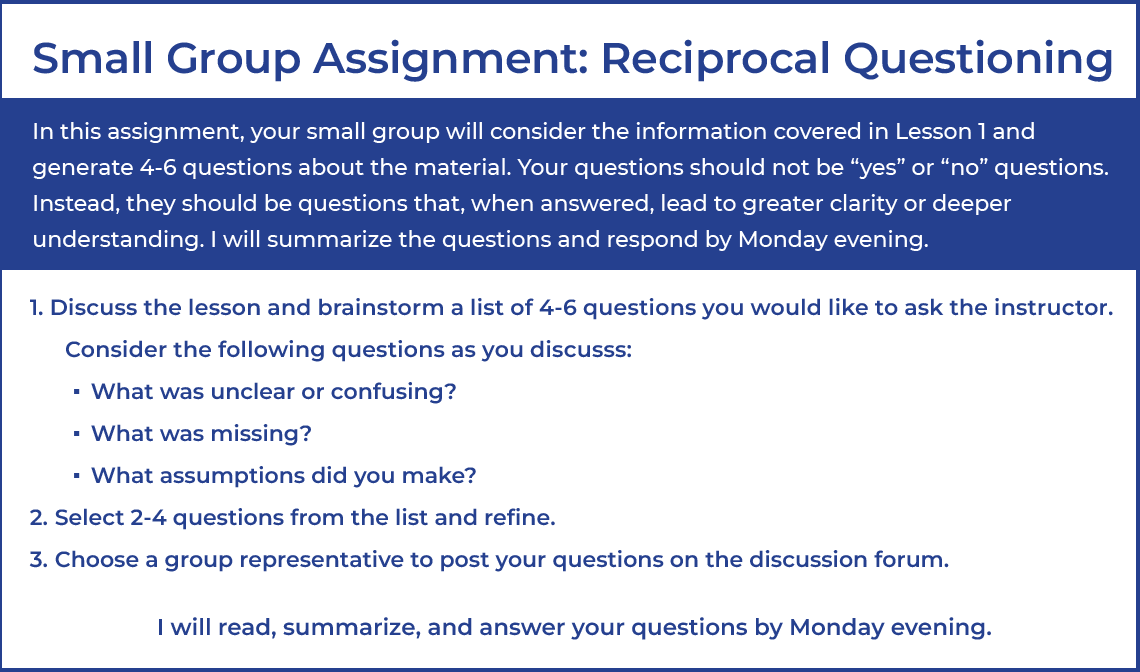
Credit: © Penn State is licensed under CC BY-NC-SA 4.0
Reciprocal Questioning is a strategy that promotes critical thinking while increasing student engagement with one another and with the course material. Students work in small groups to discuss course material, or a portion of the course material, like a video. They discuss where they need further clarification or more information. Then a group representative shares the questions with the instructor and the instructor's Docsanswers benefit the entire class.
Assignment Details
The process works like this:
- Divide the class into small groups.
- Each group discusses the assigned lesson and brainstorms a list of questions they have about the material.
- After brainstorming, the group members choose their best questions and refine them.
- A spokesperson for each group provides the questions to the instructor.
- The instructor answers the questions to reinforce learning for everyone in the class.
This activity will also provide instructors with insight into how they can further develop their material to improve understanding for future students.
This activity is a great fit for face-to-face classes but can also be used in online classes with small group discussions or collaborative workspaces like Google Docs or Microsoft Whiteboard.